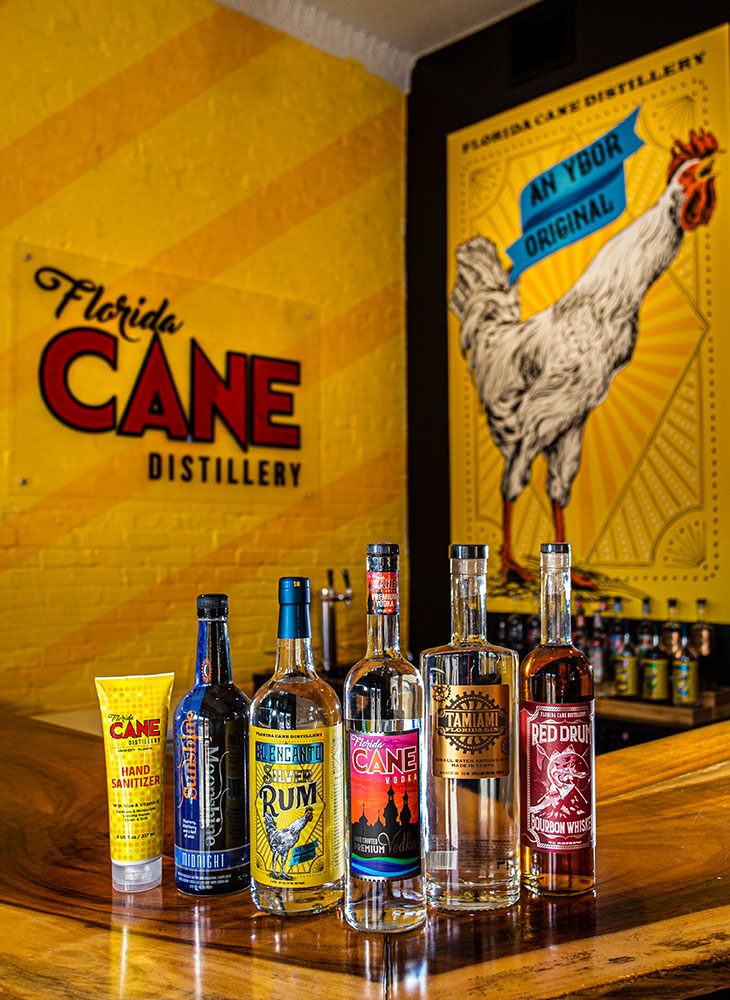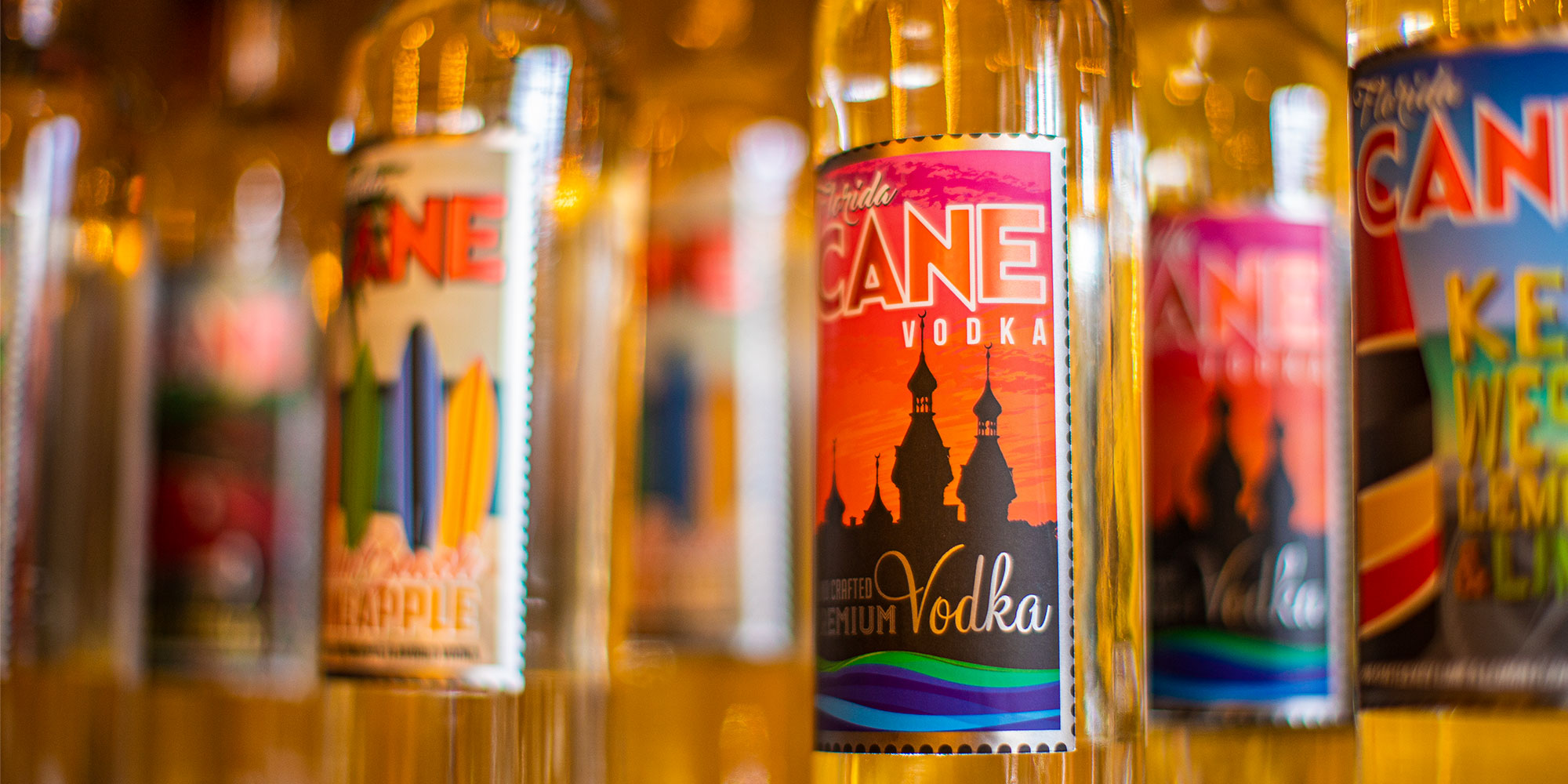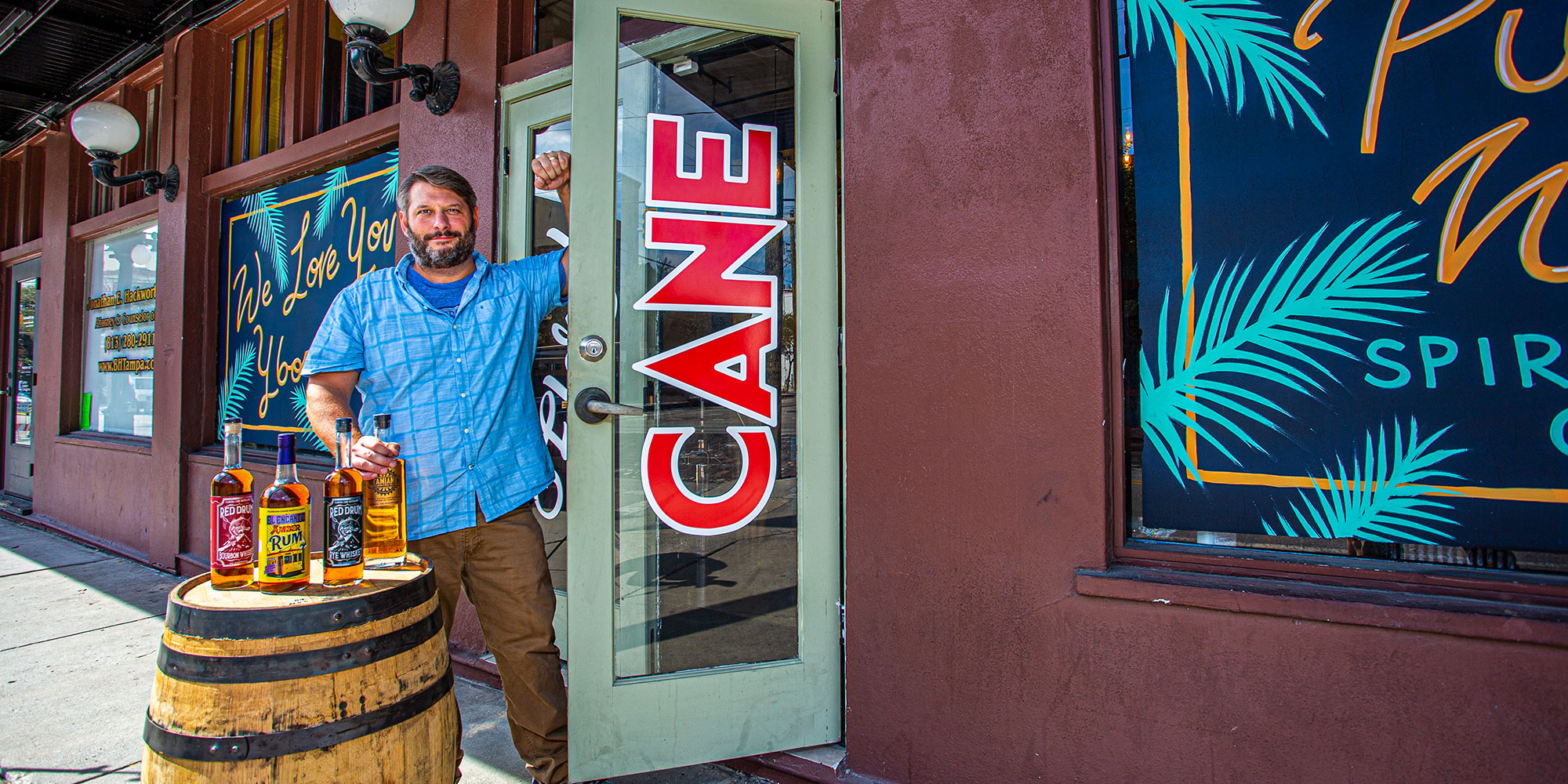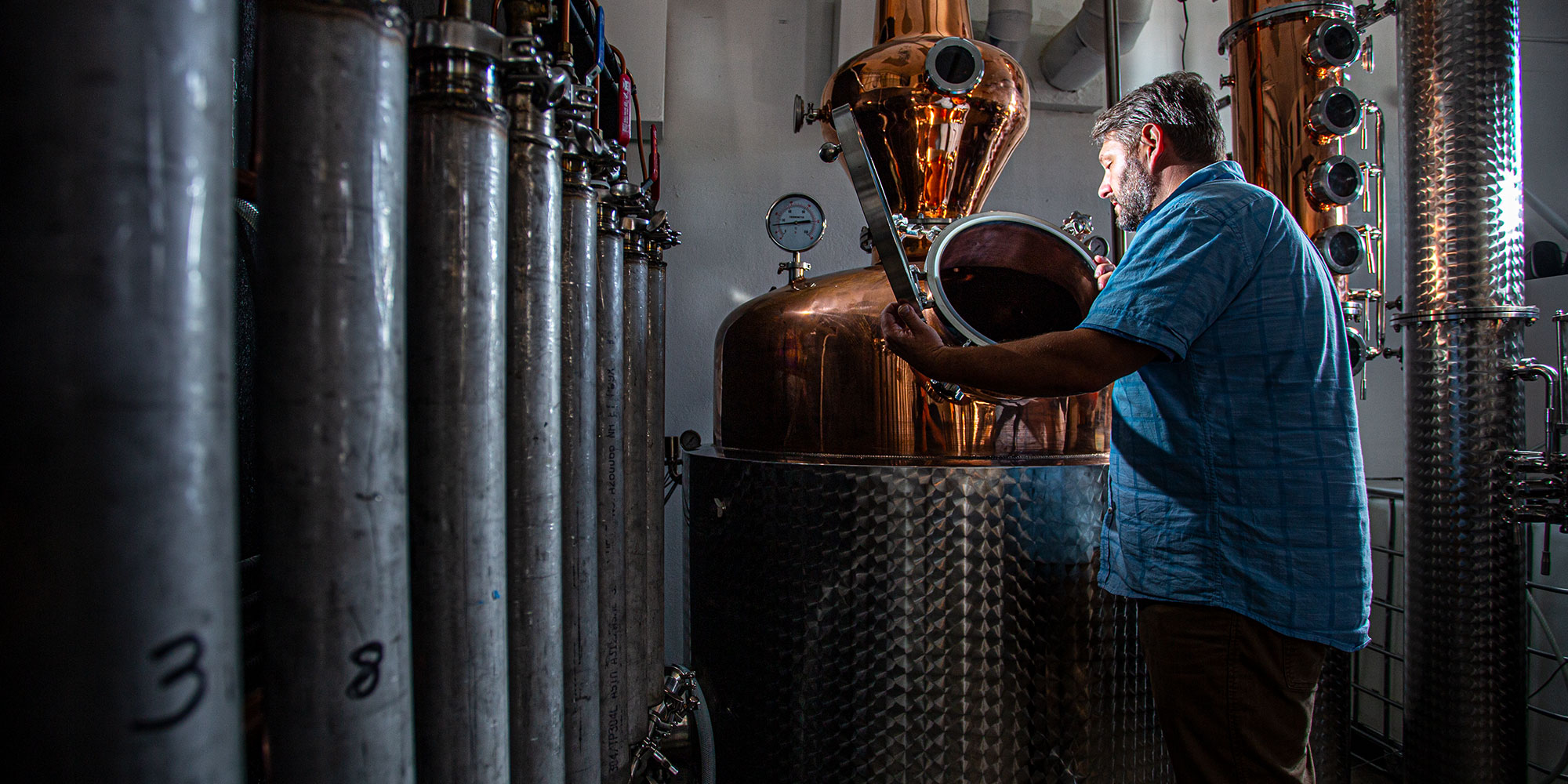As businesses around the country slowed their production to a halt or even closed their doors in the early months of the pandemic, Florida Cane Distillery could not keep up with demand. But the team wasn’t working overtime to produce bottles of El Encanto rum or Plant City Strawberry vodka at their Ybor City facility.
Instead, from late March until September, the distillery pumped out hand sanitizer exclusively. They set up an online ordering system, and the first batch sold out in seven minutes. Demand for the cleanser was so high that the Florida Cane team soon found themselves ordering truckloads of pure alcohol from a larger distillery to produce hand sanitizer back at their own distillery more quickly.
“It was like a wartime footing,” says Lee Nelson, the co-owner of Florida Cane Distillery. “People needed the hand sanitizer.”

And Florida Cane needed a way to keep its business alive at a time when its most crucial partners — bars and restaurants — could not serve its liquor. They were also hamstrung by Florida laws prohibiting craft distilleries from selling alcohol for home delivery. This law, along with a similar statute that prevents distilleries from serving anything more than a tasting of liquor at their facilities (i.e. cocktails made with the distillery’s spirits), has always been a hurdle.
The pandemic presented the chance for the state government to provide a jumpstart to Florida’s struggling craft spirits industry, Nelson says. But while restaurants could offer food and even packaged cocktail delivery, craft distilleries were never allowed to begin offering liquor delivery.
“There was never a good reason given for why [the government] didn’t allow that,” Nelson says. “The governor and the legislature missed a huge opportunity to help Florida small businesses.”
Nelson and his team have been slowly but surely fighting to build Florida’s craft distilling scene since Florida Cane opened in 2012. He was originally interested in brewing beer, but a trip to a San Francisco distillery piqued Nelson’s interest in spirits.
“One thing that kind of struck me was there wasn’t really a craft spirit industry in Florida,” he says, with the exception of Siesta Key Rum.
State laws made it difficult to open a small-batch distillery that would be accessible to the public. Before 2014, Florida craft distilleries could neither sell spirits directly to customers nor be located in a commercial area — unlike in states like Kentucky, with its famous Bourbon Trail. Nelson and Florida Cane co-owner Pat O’Brien have done almost as much work advocating for their industry as they have developing products like their Redrum whiskey, named for Nelson’s favorite sportfish. Their advocacy has led to real legal change, enabling Florida Cane to open its tasting room on Ybor City’s Eighth Avenue in 2016.
Despite the inherent challenges in operating a craft distillery, Nelson says community support has always been strong. “We wouldn’t be here if it weren’t for local people trying to keep us alive,” he adds.
Florida Cane has grown to make 32 different products, the most of any craft distillery in the country. The lineup includes vodka, moonshine, gin, whiskey, rye and — Nelson’s pride and joy — rum. The distillery’s El Encanto silver rum has won multiple gold and double gold medals at spirits competitions across the country since its launch two years ago. El Encanto rum will soon launch in five additional states, making it Florida Cane’s first spirit sold outside of Florida.
“That was the whole point of making this company,” Nelson says, “seeing if we can incubate a brand and bring it up to the national stage.”

Now Nelson and his partners are thinking ahead to the next phase of Florida Cane. That would include additional expansion outside of Florida, a bigger sales staff, multiple tasting room locations and specialized distilling classes for every spirit they make (a whiskey class is already offered). To do that, they’re returning to their roots. Nelson and O’Brien started the company with a peer-to-peer, or crowdfunding, loan, and this fall they launched their second-ever crowdfunding initiative. “We just had so much luck with the previous model — which was, trust us, we’ll pay you back — we thought, let’s do it again,” Nelson explains.
Florida Cane is now well on their way to raising their goal of $320,000. Because the minimum investment is only $250, it opens up the possibility of investing to a wide range of people that the distillery can then build a relationship with, Nelson says. “If everything goes right, they’re going to be owners of the distillery. It’s a different kind of visit when someone comes in and they know they’re part of the story.”

And in return, Nelson wants the distillery to be a part of both Florida’s story and Tampa’s story. All of Florida Cane’s spirits use Florida fruits, like oranges, strawberries and limes, and have names and art that honor the state’s history.
“We want to put what people think of, and what Florida means to us, in a bottle,” he says. “The end result is that we are the craft spirit company from Florida. We love what we do. I think that rubs off on people. They come in here and they want to be part of that.”



